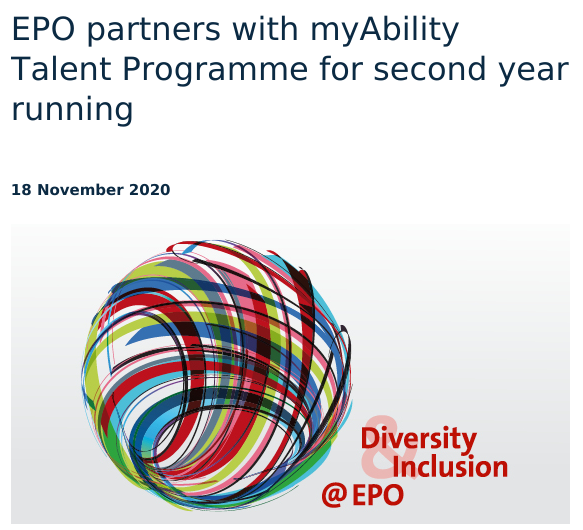

THE crude 'junk' above is an insult to reality itself and to disabled people (even if the Office is careful to avoid that word, being oversensitive only at the most superficial level).
epo.org link) from this morning says: "Though talents participated remotely due to the COVID-19 pandemic, recent advances in the EPO's overall digital connectivity enabled closer involvement of our other offices outside Munich, including The Hague office. The project also provided an opportunity for the EPO to network with other companies on disability inclusion."
[PDF], summarising its contexts (including annexes) as follows:
Report on the June GCC meeting - Long-Term Care Insurance, teleworking and rewards for 2019
The GCC met by videoconference to consult on Circular 266 (Amendments to the EPO Long-Term Care Insurance) and teleworking. We gave our written opinion on those two items.
As regards teleworking in particular: we are aware that staff members generally welcome more flexibility in their work and the chance to better balance their work life with their life outside the Office. They have recently made enormous efforts to try and continue working from home despite difficult circumstances. This phase has been lasting for almost three months and it does not mean that staff is prepared to work for a prolonged time under uncertain and degraded conditions, disguised as “temporary” or “emergency” measures. We welcome the possibility of teleworking, if introduced in the proper framework. We gave a unanimous opinion against the “emergency” teleworking guidelines in the version presented in the document.
We also discuss the President’s instructions on rewards without being allowed to give a formal opinion on them (in our view contrary to the statutory requirement).
The GCC meeting was the last one with the current staff representation, whose term on office will end on 30 June. It exemplifies once more the deficient social dialogue and consultation process deliberately set up (or maintained) by the President of the Office.